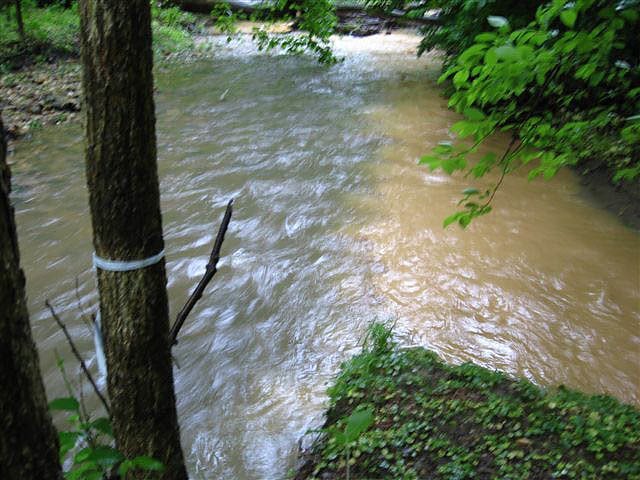Maryland Court Rules in Favor of Local Riverkeepers and Rejects Weak Montgomery County Stormwater Permit
By: Waterkeeper Alliance

On April 2, the Maryland Court of Special Appeals ruled against the Maryland Department of Environment (MDE) and sent the flawed stormwater permit for Montgomery County back to the state’s environmental regulators, citing a laundry list of legal and factual shortcomings that violated state and federal law. The court’s April 2 order upholds a 2013 lower court ruling that agreed with Potomac, Anacostia and Patuxent Riverkeepers and other environmental petitioners, finding that the 2010 permit failed to set clear benchmarks for reducing urban stormwater pollution and failed to provide meaningful public participation as the permit was developed. Instead of revising the permit, MDE appealed the court’s ruling, leading to the April 2 decision. The environmental petitioners include Friends of the Earth and Waterkeeper Alliance, who are both represented by Earthjustice in this case.
In this latest ruling, the state’s midlevel appellate court reiterated a number of fatal flaws: complete lack of enforceable, verifiable requirements to reduce stormwater pollution, no specific standards for complying with the overall Chesapeake Bay pollution limits set by EPA, inadequate requirements for monitoring and reporting stormwater reduction measures during the five year permit term, and a complete failure to issue a permit with enough detail for the public to meaningfully comment.
“This legal victory sends a clear message to Maryland regulators and county officials – they must work together to write a new permit that clearly describes how and when the County is going to take action to reduce stormwater pollution fouling our local rivers and Chesapeake Bay,” said Phillip Musegaas, Legal Director of Potomac Riverkeeper Network. “In order to actually improve water quality, the state should require strict monitoring and reporting to verify that actions taken by the County are working to remove trash and toxins during the five year permit term, not at some unknown time in the future. Citizens in Montgomery County who have spent their time and money installing practices on their property to reduce their own stormwater deserve to understand how their work is being counted and who else is going to join them.”
Urban stormwater pollution is one of the largest contributors to water pollution in the Washington, D.C. metro area. Many of the waterways in Montgomery County are so highly polluted by fecal bacteria, toxics, trash, sediment, nitrogen and phosphorus that they fail to meet Maryland’s legal standards for water quality. The Anacostia River, Potomac River, Rock Creek, Cabin John Creek, Seneca Creek and Lower Monocacy River have all been identified as “impaired” by a variety of pollutants, meaning they do not meet Maryland water quality standards for protection of aquatic wildlife, human contact, nor recreational uses such as boating and kayaking.
“Sooner or later the State of Maryland will realize that they need to update their approach to stormwater permitting,” said Mike Bolinder, Anacostia Riverkeeper. “States can’t simply say they’re going to do better- they need to actually measure improvements and include public participation in the process as a matter of environmental justice.”
“This ruling is a decisive win for citizens’ vigilance in the face of regulatory laxness, and reaffirms the fact that engaged citizens help make better laws and build better outcomes for cleaning up our waterways,” said Fred Tutman, Patuxent Riverkeeper. “River advocates on the Patuxent have a long and illustrious history of using the courts in order to get the government to zealously do its job of regulating and protecting our water.”
MDE must issue a stormwater permit to the County (called an “MS4” permit) that spells out in detail how and when the County will implement practices to capture and filter stormwater before it enters the storm sewer system and flows into the Potomac, Anacostia and Patuxent Rivers and Chesapeake Bay.
“For far too long, our nation’s waters have been inundated with pollution from uncontrolled stormwater discharges,” said Kelly Foster, Senior Attorney at Waterkeeper Alliance. “This ruling demonstrates that the states are required to control stormwater pollution through Clean Water Act permits that contain enforceable and verifiable pollution limits.”
###
For media inquiries, please contact David Richards at [email protected] or call 202.429.7433
The Potomac Riverkeeper Network is a non-profit organization with three regional branches: the Potomac River, the Upper Potomac River and the Shenandoah River. Our mission is to protect the public’s right to clean water in our rivers and streams. We stop pollution to promote safe drinking water, protect healthy habitats, and enhance public use and enjoyment. Visit us at www.prknetwork.org